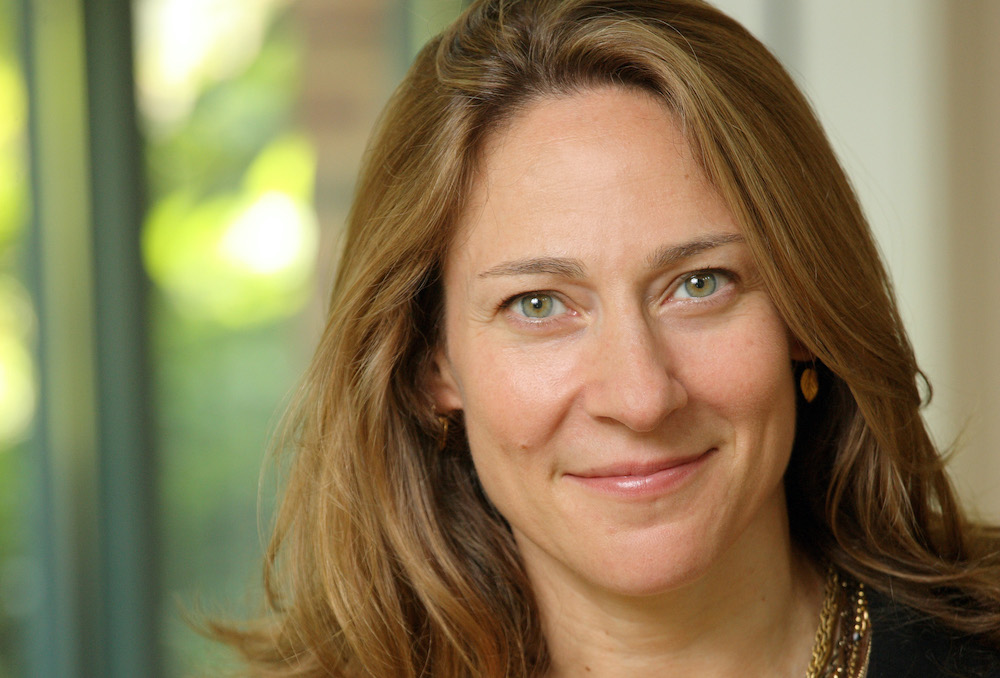
Rachel A. Harmon is a professor at the University of Virginia School of Law, where she directs the Center for Criminal Justice. A leading scholar of policing, she previously served as a federal prosecutor in the U.S. Department of Justice’s Civil Rights Division, where she investigated and prosecuted civil rights crimes including hate crimes and cases of excessive force and sexual violence by police officers and other government officials. Before participating in the “What Would Society Look Like Without Police?” panel, part of the Zócalo/University of Toronto series The World We Want, she visited the virtual Zócalo green room to talk triathlons, why Supreme Court justices are just like the rest of us, and why she moved from prosecution to academia.
What’s your hidden talent?
Hidden from who is the real question? What I do in my spare time is triathlons—I race. So I do a lot of training and racing. But I don’t know that that’s a hidden talent, except that it’s disconnected from my professional life.
What’s your drink of choice?
Kombucha—pineapple kombucha. In fact, I have one right here. And my secret COVID vice is popcorn. I make popcorn constantly, and if I could, I would eat it in the shower. I love popcorn.
What was the most surprising thing you discovered during your time as a Supreme Court clerk?
Probably how human Supreme Court justices are. They’re just like regular people, with important jobs. I worked for Justice Breyer, and he is a wonderful and super-normal guy who is close to his kids and his grandkids, and has hobbies. I never thought about a Supreme Court justice’s hobbies.
How do you procrastinate?
I believe in productive procrastination, so I always do something further down my to-do list that is less bad than the thing that I’m avoiding. It’s quite wonderful because eventually, the thing that I’m avoiding is no longer the worst thing on my to do list, and it gets done.
What are you most looking forward to about post-pandemic life?
Being in the same house and having meals with my mother and father. [But] I have a couple of college-aged kids who would be out and about, and instead are home with me for one more year [because of COVID], and that’s been heavenly.
What inspired you to move from working as a prosecutor to going into academia?
I loved my work at the Department of Justice, but I started to feel that criminal prosecution couldn’t possibly be the best way to handle the problem of police violence. I not only didn’t think I was solving the problem, but sometimes I wondered if I was making the problem worse. You’d go and prosecute a police officer, and the chief would say, “Problem solved! We’re going back to business.” But it was clear that problematic officers are made by problematic departments.
Looking for ways to intervene earlier in the problem, looking to prevent problems of police misconduct—rather than putting people in jail for the worst minute of their life—seemed like something I was interested in doing.
What are you reading right now?
I just finished reading with my students Street Justice, a history of police violence in New York City by Marilynn S. Johnson. For pleasure, my daughter wants to be a novelist, and I’m reading a book about writing novels with her, Sol Stein’s How to Grow a Novel. For myself—I usually alternate between fiction and nonfiction—I just read The Art of Memoir by Mary Karr, which led me to believe that I would never, ever write a memoir. I don’t have that kind of gene. And for fiction, 1Q84 [by Haruki Murakami] I finished last week, which was terrific.
What was the last great dessert you ate?
I grew up in New York, and I never had a root beer float when I was growing up—I drank egg creams, but not root beer floats. I had my first root beer float in college, and I thought it was a revelation. A couple of days ago, my husband made me a root beer float. I’m a big fan.
How have the protests and conversation around Black Lives Matter and defunding the police this past spring impacted your work?
Whatever’s going on in policing affects my work. And my students are focused on what’s going on in the world—whether it was the Occupy protests, Ferguson, or today. Of course they’re asking new questions about defunding [the police] and abolition because of the interest after George Floyd. As things heat up in moments of crisis in policing, there’s a lot more pull on me to focus outward, to contribute to reform efforts, to advise government actors or nonprofits who want to develop a reform agenda or want to participate in some important way. So it can often pull me away from traditional scholarship toward more engagement in the world, and that’s part of what I do, and what I like to do. But then I think sometimes that my writing suffers, so when things cool down, I have to turn back to traditional research.



